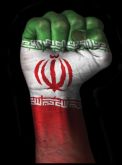×


We have detected your country as:
Please click here to go to the USA website or select another country from the dropdown list.
by: Brian Schrauger. Bridges for Peace
 Photo credit: Steven Blandin/shutterstock.com The first Persian Empire is well-known to students of the Bible. Its founder, King Cyrus the Great, is lauded as the ruler God used to return the Jewish people from 70 years of exile. It is also portrayed by the book of Daniel as one of the world’s most powerful and influential governments in human history.
Photo credit: Steven Blandin/shutterstock.com The first Persian Empire is well-known to students of the Bible. Its founder, King Cyrus the Great, is lauded as the ruler God used to return the Jewish people from 70 years of exile. It is also portrayed by the book of Daniel as one of the world’s most powerful and influential governments in human history.
Clifford D. May, president of the Foundation for Defense of Democracies, says that today’s Iran is attempting to rebuild nothing less than the Persian Empire. May argues that the latest Middle East flare-up in Yemen is part of Iran’s master plan to resurrect Persia as a global superpower.
This plan, says May, is obvious to an unlikely pair of Middle East leaders. Israel’s Prime Minister Netanyahu and Saudi Arabia’s King Salman concur: Iran is pursuing a “pincer movement” that represents “a threat to the Gulf and the entire world.”
Netanyahu is the one who called Iran’s plan a “pincer movement.”
 Agate stones and a ceramic oil lamp from the Hellenistic period May explains. “To the east of Saudi Arabia is the Persian Gulf, in and around which is the world’s largest repository of known oil and gas reserves. The Gulf’s only outlet to open waters is the 24-mile-wide [38.6 km] Strait of Hormuz. More than a third of the petroleum traded by sea passes through this strait, which Iran’s rulers have for years referred to as their ‘territorial waters.’
Agate stones and a ceramic oil lamp from the Hellenistic period May explains. “To the east of Saudi Arabia is the Persian Gulf, in and around which is the world’s largest repository of known oil and gas reserves. The Gulf’s only outlet to open waters is the 24-mile-wide [38.6 km] Strait of Hormuz. More than a third of the petroleum traded by sea passes through this strait, which Iran’s rulers have for years referred to as their ‘territorial waters.’
“To the west of Saudi Arabia is the Red Sea. Iranian domination of Yemen would mean control of Bab-el-Mandeb, the ‘Gateway of Tears.’ Whoever controls Bab-el-Mandeb also controls marine traffic in and out of the Red Sea, which has, at its northern end, Egypt’s Suez Canal.
“Control of these two waterways would give Iran an economic chokehold on Europe and Asia. With Iraq, Syria, Lebanon and Yemen already under Iranian domination, other Arab nations would soon come under severe pressure to accept the suzerainty—and perhaps the hegemony—of what could legitimately be called a new Persian Empire.”
For its part, Saudi Arabia’s foreign minister Saud al-Faisal is the one who recently called Iran’s nuclear ambitions and regional warmongering as “a threat to the Gulf and the entire world.”
And, says May, the United States is both enabling and assisting Iran to achieve its superpower goal.
“If Iran’s supreme leader does become a 21st-century emperor, he’ll have the United States to thank—and may do so in creative ways.”
All logos and trademarks in this site are property of their respective owner. All other materials are property of Bridges for Peace. Copyright © 2025.
Website Site Design by J-Town Internet Services Ltd. - Based in Jerusalem and Serving the World.